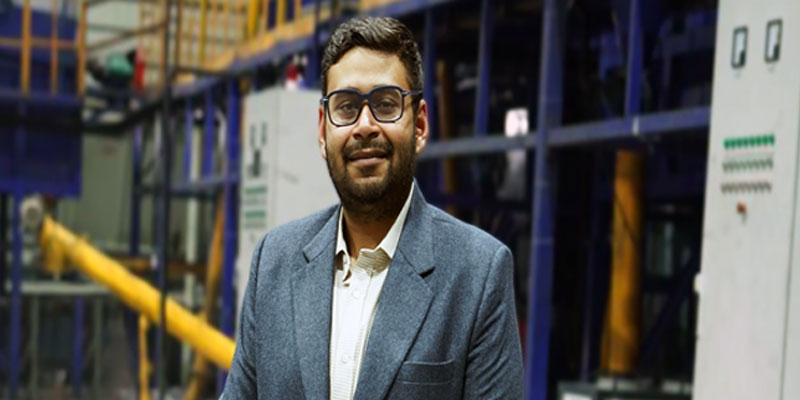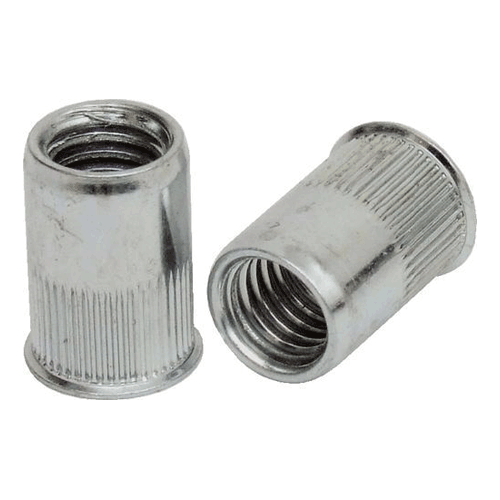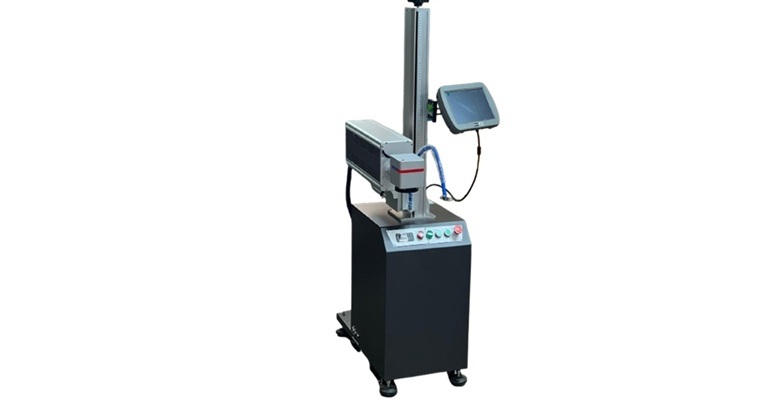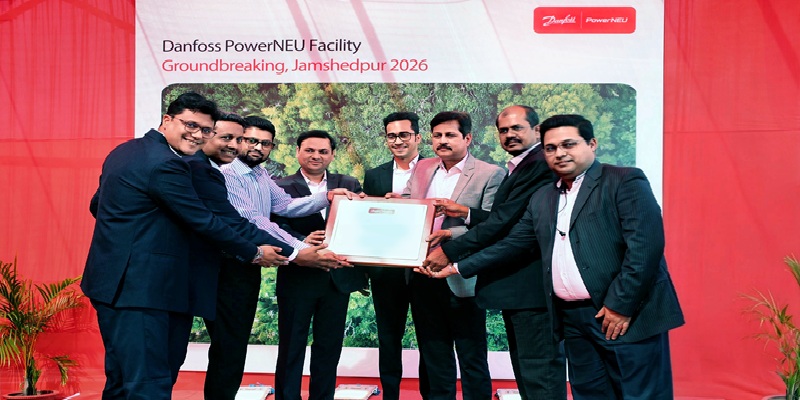Schedule a Call Back
IoT is revolutionising the way businesses function
 Interviews
Interviews- Dec 01,17

…says Abhimanyu Prabhavalkar, VP of Oracle’s IoT Applications Cloud Service and IoT Cloud Service Platform development organisation, who believes that IoT is helping many companies to improve the efficiency of their operations, sparking innovation to improving their products/services and discovering new business models. In this interview, Prabhavalkar, a technology evangelist, discusses factories of future and advantages of digitalisation for manufacturing industry.
What impact Internet of Things (IoT) has made on today’s enterprises?
As enterprises think of adopting digital strategies on their Industry 4.0 journey, IoT presents a set of key transformative innovations that help modernise the digital supply chain. One of the most vivid transformations is the change in the consumption model from ownership to ‘as a service’ or ‘pay as you go’. This trend massively changes the revenue model and the customer service model for the manufacturing companies.
With more and more connected assets, the focus is shifting from reactive or scheduled maintenance to more of predictive and prescriptive maintenance to minimise unplanned downtime. A related trend is the type of business analytics desired, from historical to more of real-time and big data analytics, with the availability of the large amount of sensor data.
Another trend is the change in the service model from that of centrally executed to more of self-serve and guided service model – whereby customers could avail the online facilities (such as Over The Air configurations etc) to service the products on their own or the service technicians could use the guided service facilities to improve the service efficiency and customer experience.
With sensors attached to products, it’s possible to have ears and eyes in real-time on how the products are being used by the customers and these new channels of information could be used for enhancing the existing products or designing new type of products.
Which sectors are driving the demand for IoT?
IoT is revolutionising the way businesses function. IoT is helping many companies to improve the efficiency of their operations, sparking innovation to improving their products/services and discovering new business models. There is a great momentum in manufacturing, transportation & logistics, utilities and healthcare/pharma across the globe.
Many manufacturing customers have transitioned to ‘Smart Factory’ by integrating robot, machine and process monitoring data with ERP to modify the production processes in real-time and using the machine learning functionality for predictive maintenance. They have already started to provide better customer experience through higher supply chain transparency and at the same time, staying ahead of the competition by integrating new technologies such as IoT.
Many customers have adopted IoT to modernise their transportation and logistics by having a real time visibility into the movement and condition of goods/shipment and health of the fleet vehicles to enhance the customer experience through better SLAs/ETAs while tuning the supply chain operations in real-time. Electrical and water utilities have used IoT applications to deliver insights into energy efficiency to their customers and track the water usage in a smart manner respectively; while increasing their operational efficiency by data-driven diagnostic & predictive maintenance. The asset intensive companies have applied IoT to not only monitor the behaviour of their owned assets but also the products being used by their customers.
How is digitalisation triggering changes in manufacturing sector (globally and India)?
One of the most significant changes triggered by digitalisation is the customer driven business model rather than company-centric model. Customers have a lot more global influence due to their use of social and mobile technologies. They are demanding ‘individualised’ products of better quality with low cost and delivered at a faster pace to them.
Manufacturing companies need to have the ability to design and produce high customisation products in this era of mass customisations. This has several implications for the manufacturing companies such as the need to have flexible production lines and processes, change in the logistics from managing small number of large shipments to large number of small shipments, need for better end-to-end supply chain visibility to react to any supply side issues faster etc.
For many manufacturing companies, this entails rethinking their business models completely and start thinking about what their customers need not just today but tomorrow as well. But digitalisation also opens up new business opportunities for the manufacturers. They now have the luxury of using the massive amount of data now available to them to not only perform smart analytics such as better demand signal planning, predictive maintenance to reduce the down time of their production lines but also, and more importantly, innovate to find new services that can be offered to their existing customers as well as establishing into new customer segments to sustain revenue growth and differentiate themselves from the competition.
In fact, the impact of digitalisation is going to so huge that it can create new wave of companies in the manufacturing sector – much like what happened in other businesses such taxi services (eg Uber).
Given India's strength in software development, can India take the lead in new-age manufacturing technologies such as Industrial IoT, Industry 4.0, etc?
IoT is about using the hardware and software together seamlessly. There are many elements and applications that have to be stitched together for a comprehensive IoT solution. If you look at the entire equation closely, you will realise that India has proven their mastery of many of these elements – such as software, analytics, system integration etc. So this provides massive advantage for Indian companies to make foray into the Industry 4.0 journey.
However, India also needs to start thinking about building end products themselves rather than just providing the back-office or software support. There are already encouraging examples of using advanced manufacturing technology such as the automotive industry where many global brands have set up their manufacturing plants in India.
How important is data analytics in today's manufacturing world? Are companies today relying more on data analytics to take business decisions?
Analytics is the most important components of the new digital solution stack. The focus of the new technologies should be on business outcomes to avoid the disillusionments it will cause otherwise once the technology hype subsides.
Let’s take an example of IoT. There are general misconceptions whereby people tend to focus more on devices rather than the business outcomes. That has led to failure of many IoT projects (as per one survey, approximately 70% of IoT projects fail) as the scope spirals upwards with no clear business conclusion being arrived at.
The business outcomes are empowered by analytics. A clear vision of the business KPIs and metrics is extremely important before starting any new project. Massive amounts of data generated by sensors and connected assets coupled with the voluminous data already residing in the enterprise business applications needs to be used wisely to derive useful analytics that can help a company in competitively differentiating themselves. The data overload needs to be converted into pinpointed analytical results that then can be used for desired business outcomes. The advent of machine learning and deep learning could be used for finding anomalies, identifying useful patterns and predicting the outcomes ahead of time.
There are more and more companies who are joining this wave of using advanced analytics. Still, there are a lot of companies who have invested in new technologies but have not made use of analytics properly to derive the most out of their investments.
Do you think there is increasing need for cyber security with rise in digitalization?
With the technologies such as IoT, mobile, Cloud, there are more and more ‘things’ and ‘devices’ being connected to the enterprise network. There are never-seen-before ways of how customers and end-users have started interacting with the enterprise applications. The security paradigms have changed from just securing network perimeters to securing data spread across systems, devices and cloud.
With the connected supply chains, any security vulnerabilities anywhere in the chain have drastic effects on rest of the system and can cause businesses to collapse, if not handled swiftly and appropriately. Cyber security has become a key strategic priority for digital business. While considering any technology solution to enhance their digital portfolio, companies should consider the security implications and security features right from the start.
Automotive industry has been at the forefront when it comes to adoption on modern technologies (such as automation, advanced robotics, Industry 4.0, etc). What is your opinion on this?
Automotive industry is a shining example of how advanced manufacturing, automation and robotics can set an industry apart. The automotive sector alone contributes more than 45% to the country’s manufacturing GDP (and about 7.1% to India’s GDP) and employs approximately 19 million people.
Automotive industry has always been the front runner in terms of adopting latest technologies and creates a large impact due to the massive scale at which it operates. The automotive industry is adopting IoT, Blockchain, augmented reality, 3D printing, autonomous vehicles, artifical intelligence (AI) at a rapid pace to set an example for the rest of the industries to follow.
What will be key features of ‘factories of future’?
Factories of future will have end-end connected supply chains - from suppliers to manufacturing operations to distributors to customers. Not only will the factories of future be able to handle the variance (which is inevitable) in the supply chain but be able to use it in beneficial ways.
The factories of future will be more autonomous requiring less (almost none) human intervention as the automated template workflows allow a manufacturer to track items from procurement and product design, to manufacturing and product life cycle management, to warehousing and transportation, through to logistics and procurement. As well as providing better visibility, this enables new business models, such as dynamic demand planning and a very responsive supply chain.
They will able to provide a lot of transparency to their suppliers, distributors and most importantly, their customers. The higher transparency ‘within the walls’ will provide more democratic environment for better decision making and the external transparency with enhance the supplier trusts and customer loyalty.
The factories of future will be a lot more intelligent – and that too ‘machine’ intelligent. With the help of advanced analytic techniques such as machines learning and deep learning, there will be a new dimension to the machine-machine networks where the machines will be able to make changes to the production processes and configurations on their own.
How important is the role of events such as Smart Industry Solutions is shaping the future of manufacturing?
Industry 4.0 is not about a single technology but is rather about using multitude of technologies together in a smart way. The smart factory solutions will be comprised of many different components such as sensors, gateways, networks, software solutions, analytics, integrations with business applications, mobile applications, cloud etc. In other words, this is an ecosystem play where different entities have to join hands and bring their respective capabilities to the table in order to provide the meaningful benefits to the industry. This is where events such as Smart Industry Solutions play a vital role. They bring not only all these technology providers but also the business users together to discuss the real-world industry use cases, available solutions and provide a healthy platform for collaboration and further advancements.
Related Stories

Aimtron Electronics Enters OEM Engagement with Climate-Tech Firm Aurassure
Aimtron Electronics has partnered with climate-tech company Aurassure to manufacture IoT-enabled environmental monitoring systems supporting real-time, hyperlocal climate and air-quality intelligenc..
Read more
Why Cleantech-driven Recycling is the key for India to Lead Global Manufacturing
Cleantech-driven recycling can cut import dependence, strengthen supply chains, create jobs, and position India as a global leader in sustainable and circular manufacturing, comments Akhilesh Bagari..
Read more
Is your facility ready to handle the energy demands of full automation?
As warehouses scale AI-driven automation, energy demand is emerging as a critical constraint alongside productivity gains. Strategic power planning is now essential, writes Emily Newton.
Read moreRelated Products

Premium Quality Reduced Head
Advance Hydrau Components Pvt Ltd offers an array of rivet nut, reduced head.

Blended Learning
Eduquestindia Institute Pvt Ltd offers Blended Learning. There is often a debate around the thought as to which is a better approach to training and development for corporates. On the one hand, the Read more

Rapid Authoring
Eduquestindia Institute Pvt Ltd offers Rapid Authoring. The business environment in which the modern day corporates operate is quite intriguing. An increased competition over time has brought in ad Read more
















